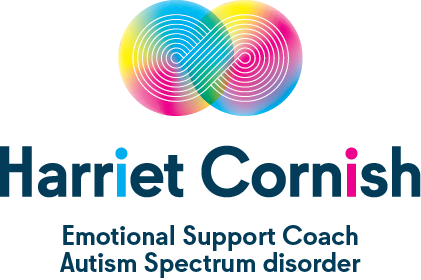Professional Boundaries & Protocols
The role of an Emotional Support Coach (ESC) for high-functioning autism

Job purpose:
To support clients not in need of counselling but in need of short-term emotional support
Key responsibilities & accountabilities:
- To provide individual, confidential, emotional support, listening skills, empathy, understanding, to high functioning autistic adults or family members living alongside high functioning autistic members.
- To provide support in guiding adult individuals or their loved ones, and help them navigate through a world that can appear to cater specifically for the neurotypical.
- Emotional support coaching is not counselling; emotional support coaches work with parents, partners and autistic adults to help them navigate the challenges they face over their lifetime. They do not prescribe any action/activity to the client. It is about listening and the client knowing that they understand what the autistic family is all about. Most coaches are a combination of knowledgeable and emotional support providers who have experienced autism in some way during their lives.
- Autistic Emotional Support means that if any suspected harm to the client/others is raised, a risk assessment will be performed. If the client or others are in imminent danger, your GP, mental health nurse or law enforcement will be contacted as a last resort. Child/adult safeguarding will be followed as per the individual safeguarding policy. I am not bound by confidentiality, if in good faith, I feel that I can assist in the prevention or detection of a serious crime, this includes safeguarding issues regarding children or vulnerable adults, crimes regarding substantial financial gains and losses, and acts of terrorism.
- Autistic emotional support means that anything discussed is confidential. All client interactions are recorded in writing/dated/signed by the ESC shortly after seeing the client. All confidential records will be passworded on the document and entry into the computer.
- ESC’s are responsible for ensuring their enhanced DBS is up-to-date
- ESC’s are responsible for attending monthly supervision that is necessary to their role in supporting their clients and keeping themselves healthy. Supervision is provided by a fully qualified, BACP approved counsellor.
- ESC’s are not required to possess credentials or approval from BACP for their coaching. Holding a one-year counselling diploma, lived experience and possibly work experience with HFA individuals is helpful to the role.

